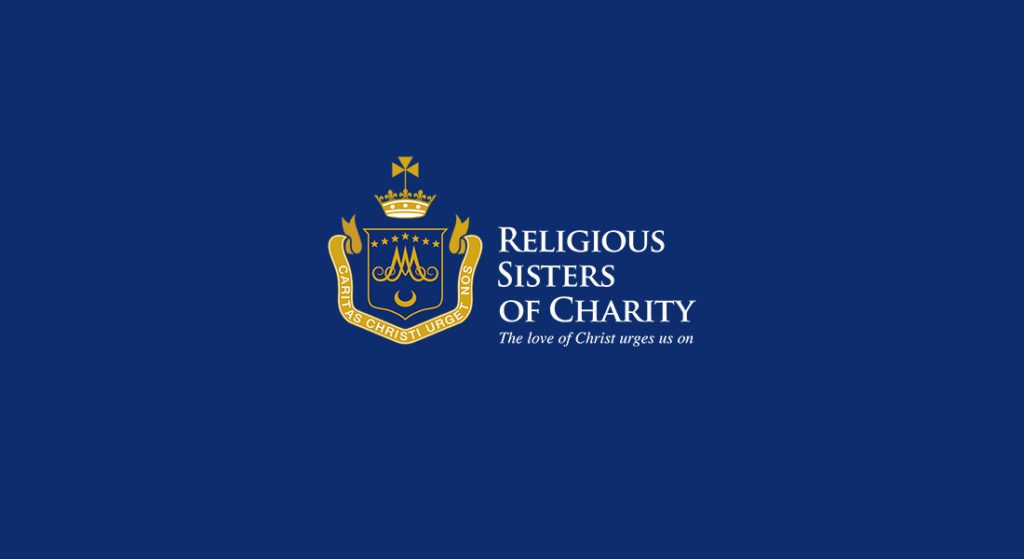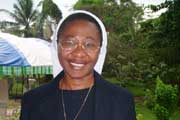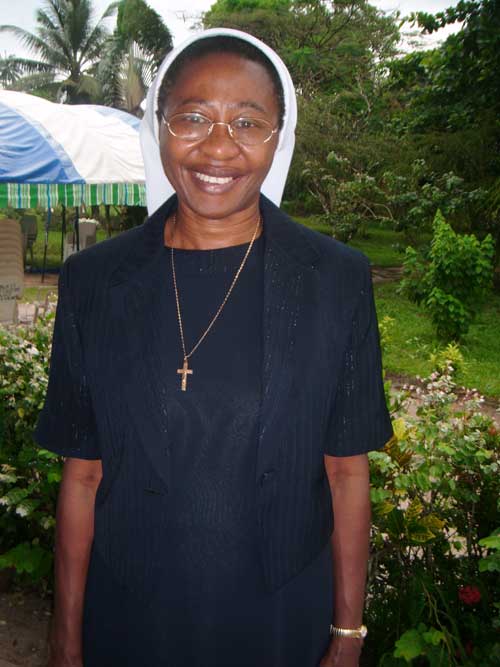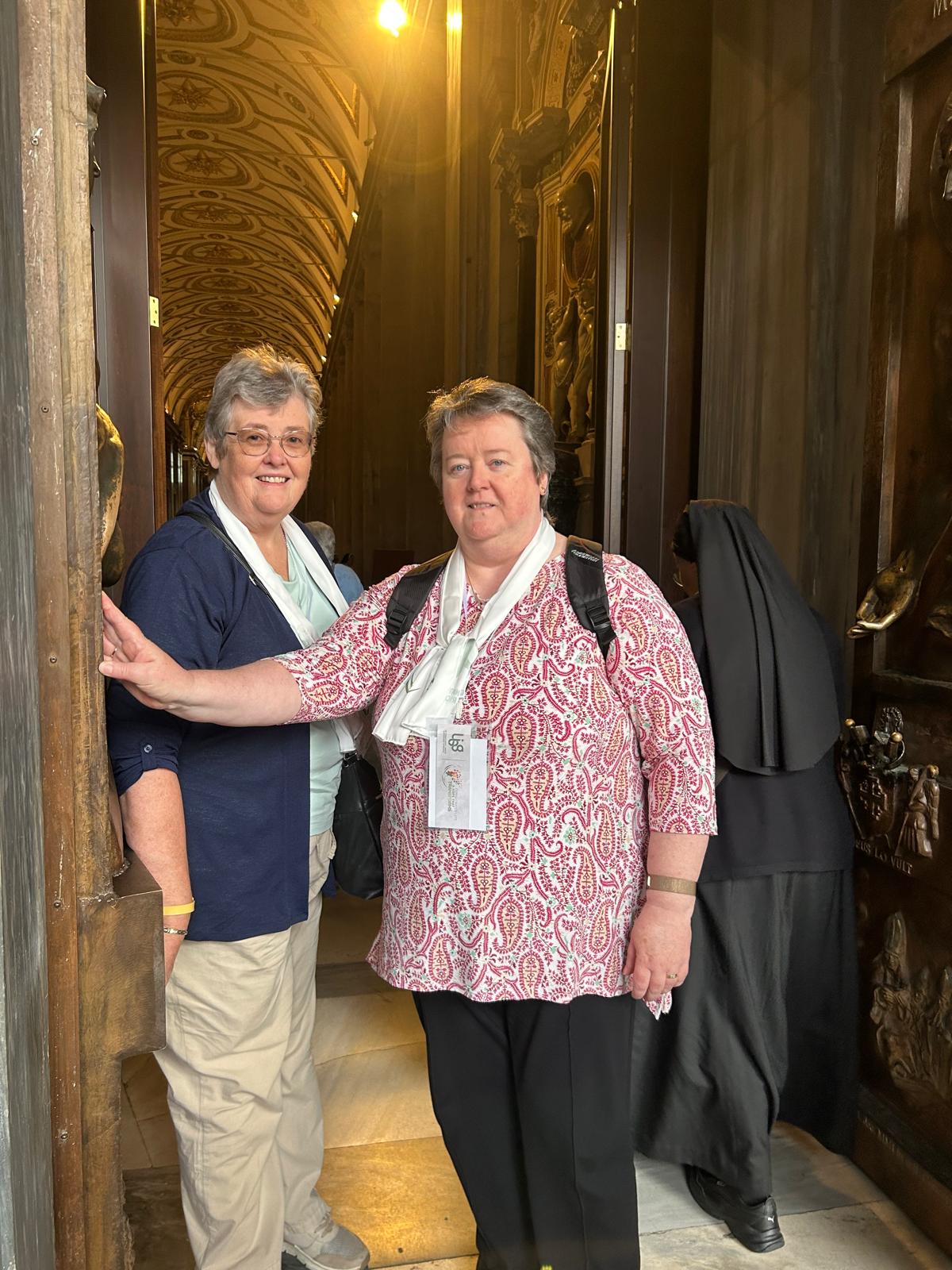
 Sr Kelechi Agugo RSC recently finished studying ‘Marriage and the Family’ in Australia and returned to Nigeria to implement what she had learnt in the context of her work in the Archdioces of Lagos, in Nigeria and beyond. Here Sr. Kelechi reflects on her ministry:
Sr Kelechi Agugo RSC recently finished studying ‘Marriage and the Family’ in Australia and returned to Nigeria to implement what she had learnt in the context of her work in the Archdioces of Lagos, in Nigeria and beyond. Here Sr. Kelechi reflects on her ministry:
“With gratitude to God, I am privileged and pleased that following the completion of my studies at the John Paul II Institute for Marriage and the Family in Melbourne Australia, I was missioned to continue in the pastoral ministry centring on the apostolate of Marriage and the Family. This is in line with the desire and urgent call of the Church (and society) articulated by our beloved Pope John Paul II (Servant of God), in Familiaris Consortio: The Role of the Christian Family in the Modern World, #86
In Nigeria as in the whole of Africa (and the world at large), the erosion of family values and threat of marriage breakdown are becoming all too familiar giving rise to unstable and fragmented society, and a ‘polluted’ environment that breeds the culture of death. In the Catholic Community, the poor understanding of the meaning of the Sacrament of Matrimony continues to exacerbate the situation. A random survey carried out among Catholic couples across Nigeria between years 2005-2008 revealed a shockingly low level of peace, harmony and happiness among them. This in my opinion is unacceptable because Jesus Christ has come “that all may have life and have it in abundance” (Jn 10:10). This abundance of life promised by Jesus to all people, a promise that is largely unfulfilled in so many millions of people is what motivates my ministry.
I would like to describe my ministry as trinitarian in nature and in structure. There are three interconnected, interlaced and interrelated aspects to it:
First, having previously lived and ministered among our people in and beyond Nigeria, some elements of marriage and family life have been identified as needing particular attention at this present time in Nigeria. The first aspect of my ministry which happens in Festac and is open to all of Lagos archdiocese therefore includes:
1. Ministry to Newly Married Couples (1-5 years of marriage i.e. foundational years of the family and sometimes engaged to be married couples)
2. Natural Family Planning including fertility literacy
These two elements have been singled out based on their scale of importance in contributing to the meaningful, harmonious and stable marriage and family life. Research supported by experience reveals that marriage breakdown happen (or at least its cracks develop) during the first five years of marriage and after that issues of family planning linked to economic reasons (in Africa) constitute much of the fertile environment for marital squabbles and unhappiness in the home.
The second aspect of my ministry is at the national level as the Co-ordinator of The Faithful House Program.
The Faithful House (TFH) program is a faith-based skills building curriculum. Its aim is to strengthen the family through enhanced couple communication. This is achieved through 3-5day workshop or a total of 24-30hrs comprised of skills building activities, positive peer mentoring and provision of a safe environment for couples’ dialogue around quality-of-relationship issues and interactional forces within dyads that contribute to sexual risk and all other forms of abusive behaviours.
TFH provides a platform for couples and families to improve in other dimensions of their lives. Once the two individuals in the couple begin to respect each other and work together, not only do they avoid hurting and damaging each other, they become better providers, through transparent management of family assets and better parents, which result in the strengthening of the family’s psychosocial, spiritual and overall well-being.
The Faithful House is an essential first step in building a strong marriage and family. It is part of an effort of “family evangelization,” a family focused initiative for human and social development. Through the implementation of The Faithful House, we want to see thousands of families empowered with social, spiritual, moral, material and relational tools that will assist them in the realization of an authentic human development. In promoting abstinence from sex before marriage and faithfulness within marriage, spouses not only avoid HIV infection, but also they experience a happier and more fulfilled life, honouring God’s plan for themselves, for their marriages and for their families.
My principal ministry however is beyond Festac and Nigeria. Towards the end of 2010, the Nigerian Regional Leadership accepted a request from the Africa Family Life Federation (AFLF) for me to work with them as the Marriage and Family Consultant to the Anglophone African countries. AFLF is a small but growing organization that is committed to up-holding and promoting the goods and values of marriage in Africa. Its charism is inspired by the universal positive values, the Church and rooted in the Gospel of Jesus Christ. Its work is based on the ancient and beautiful African values for the human person, the family and the sacredness of Life. This ministry officially began for me in January 2011. Working with AFLF on the Continent is a privilege and a wonderful opportunity for the Congregation to collaboration with others in the building of God’s kingdom in Africa, but also specifically responding to the call of our fourth vow to action in areas of greatest need and in which very few human and material resources are presently channelled. Trusting in the inspiration and guidance of the Holy Spirit, I am working with AFLF fully aware that my response is on behalf of the Congregation, through the Nigerian region, and therefore fully confident in the good will, support and prayers of all.
Already, the call to action is taking me to Nairobi a number of times, where, I as the principal project co-ordinator working with a few others are engaged in the process of developing a curriculum and in writing a training manual in Marriage and Family Life education. This is a very important project for Africa at this critical time. One may wonder why? The fact remains that colonisation/post, the political, economic and military might of the West, and the inevitable globalisation, forces the rest of the world not only to accept aids or imbalanced bilateral trading relationships, but also to import from it the Western culture and way of life even when these clash with the local dominant culture of life. The impact of the internet, media and entertainment industries has exacerbated the problem. Therefore what affects marriage in the West, and it eventually seeps into the rest of the world, especially the so called ‘third world countries’, with corrosive and devastating effects on marriage and the family as well as society in general. This threat is very real in Africa at this present time. It is said that “When health is absent, wisdom cannot reveal itself, art cannot manifest, strength cannot fight, wealth becomes useless, and intelligence cannot be applied.” – Herophilus
Like the rest of humankind, the future of Africa – its health and well-being, passes by way of the family. It is therefore imperative that African Family Life and Values be preserved, promoted and deepened.
Programs must be put in place to cater for the needs of couples at various stages of marriage. These should aim at deepening their faith in the context of daily living of sacramental marriage and raising a family in a pluralistic and apparently developing value-free society. Youth programs ought to focus on helping young people, the bulk of Africa’s population, to understand human love, as opposed to its counterfeit that floods their sensuality from the net, media and entertainment industries. Handing on the African values of family, community and the sacredness of life is a must and all hands ought to be on deck! VIVA Africa! VIVA Marriage and Family world-wide!! A M D G!!!!”
Sr Kelechi Agugo RSC







